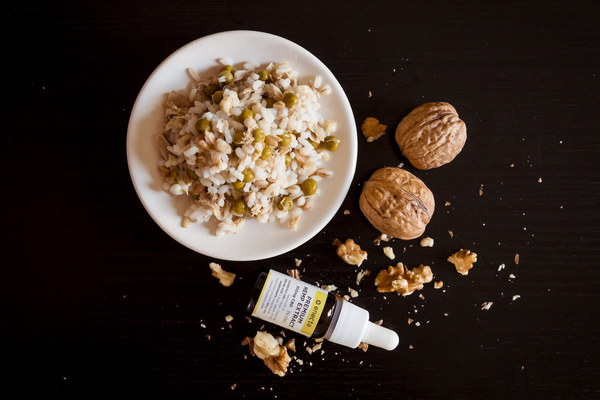Mastering Oil Control A Comprehensive Guide to Skincare for Oily Skin
Introduction:
Dealing with oily skin can be quite challenging. It not only leads to an unappealing shine but also makes it difficult to maintain a flawless complexion. In this article, we will delve into the causes of oily skin and provide you with a comprehensive guide to skincare, including the best products and practices to help you achieve and maintain a balanced, oil-free skin.
1. Understanding Oily Skin:
Oily skin is characterized by an overproduction of sebum, which is the natural oil produced by the sebaceous glands. There are several factors that contribute to oily skin, including genetics, hormonal changes, stress, and diet. It's essential to understand the root causes to develop an effective skincare routine.
2. Cleansing:
The first step in managing oily skin is to keep it clean. Use a gentle, water-soluble cleanser twice a day to remove excess oil, dirt, and impurities. Opt for products with ingredients like salicylic acid, which help to unclog pores and reduce oil production.
3. Exfoliating:
Exfoliation is crucial for removing dead skin cells that can clog pores and lead to breakouts. Choose a chemical exfoliant containing beta-hydroxy acids (BHAs) like salicylic acid or alpha-hydroxy acids (AHAs) like glycolic acid. These acids penetrate the pores to dissolve the oil and dead skin cells, resulting in a clearer complexion.
4. Toners:

Toners help to balance the pH of the skin and remove any remaining impurities after cleansing. Look for toners containing ingredients like witch hazel, which have astringent properties and can help to minimize pores. Additionally, toners with ingredients like glycolic acid can also aid in exfoliation.
5. Serums:
Serums are concentrated formulas designed to target specific skin concerns. For oily skin, look for serums containing ingredients like niacinamide, which helps to regulate oil production, and tea tree oil, which has antibacterial properties to prevent breakouts.
6. Moisturizers:
Contrary to popular belief, oily skin still needs moisture. Choose a lightweight, oil-free moisturizer that provides hydration without clogging pores. Look for ingredients like hyaluronic acid, which can attract and retain moisture, and niacinamide, which helps to control oil production.
7. Sun Protection:
Always use a broad-spectrum sunscreen with an SPF of at least 30 to protect your skin from harmful UV rays. Some sunscreens are specifically formulated for oily skin, offering a matte finish and oil-free formula.
8. Additional Tips:
- Avoid touching your face throughout the day, as this can transfer oil and bacteria from your hands to your skin.
- Use a clay mask once or twice a week to absorb excess oil and tighten pores.
- Incorporate a clay-based cleanser into your routine to help control oil production.
- Stay hydrated and maintain a healthy diet, as dehydration and certain foods can trigger oil production.
- Exercise regularly to boost your metabolism and improve your skin's overall health.
Conclusion:
Managing oily skin can be a bit overwhelming, but with the right skincare routine and a few lifestyle adjustments, you can achieve a clear, balanced complexion. Remember to tailor your routine to your specific skin needs and consult with a dermatologist if you experience persistent issues. By following these tips, you'll be well on your way to mastering oil control and achieving your desired skin health.









